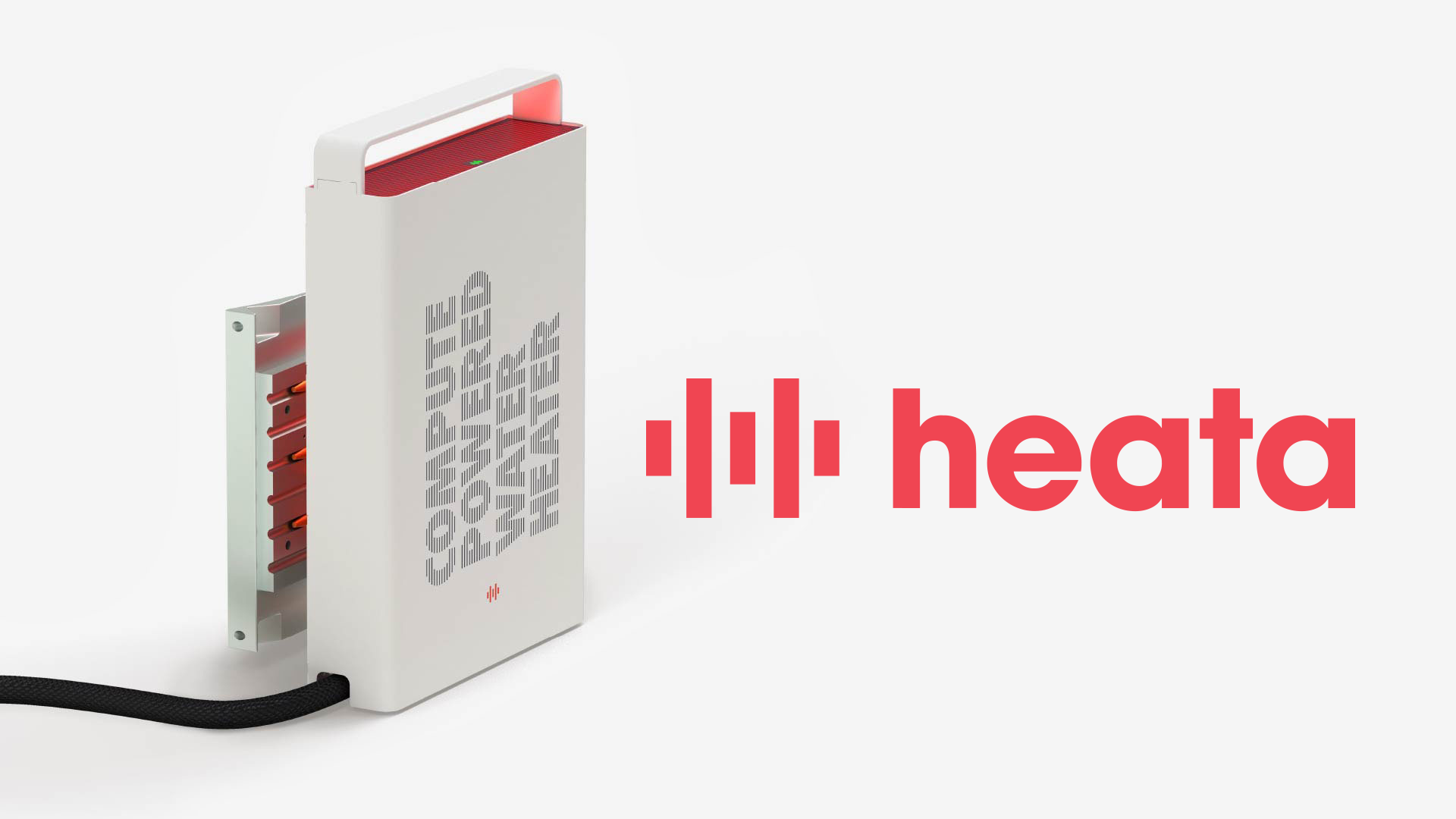This company will pay for your heating - if you let it install a server in your house
It's secure, apparently, but still terrifying

Sign up for breaking news, reviews, opinion, top tech deals, and more.
You are now subscribed
Your newsletter sign-up was successful
UPDATE 17/02/2023: This article has been amended with comments from a Heata spokesperson about the security of its server units, and how its business clients use them.
Those impatient to sell their soul needn’t waste a second more: the ultimate Faustian bargain for our modern age has arrived, courtesy of UK “green distributed compute network” Heata.
The offer (via Tom’s Hardware) is deceptively simple. You let Heata install a water-heating server unit next to your existing hot water cylinder, and it’ll provide up to 4.8kWh of free hot water a day (80% of a UK household’s daily use, apparently) for an entire year.
This is done simply by letting businesses use the server for cloud computation while the unit scoops up waste heat.
Dubious server installations
In theory, it sounds like a strong concept, given that it currently costs a pretty penny to heat a home. And so you may be tempted to let a company that claims to be committed to stamping out fuel poverty, and able to save you "up to £200 a year", help out.
Except that the company began within, and still has investment links to, British Gas, which is hardly struggling to make ends meet right now.
As I write in February 2023, British Gas' parent company Centrica has recorded record profits of £3bn for 2022 amid the ballooning cost of energy, so maybe reconsider whether this is a totally selfless act.
But beyond this trifling 'critical thinking' business, the server has to connect to your router. And while “most of the time” it'll only be reporting monitoring information and performing speed tests, you’re still taking Heata’s word on that, and leaving an unfamiliar device constantly connected to your network.
Sign up to the TechRadar Pro newsletter to get all the top news, opinion, features and guidance your business needs to succeed!
Heata claims it will reimburse trial participants for electricity, but, for broadband, they may be out of luck in the short term. Its brochure claims that, eventually, the server will be capable of its own connections via 4G, 5G, or a fiber line. But for now, you’ll have to trust them when they say it’ll only use up a “fraction” of your bandwidth.
The company also gracefully assures prospective trial users that they won’t be able to access or connect to the device to, say, mine cryptocurrency on it. That's all well and good, but like any server, it's theoretically not impossible that a persistent threat actor could gain access for themselves.
You also don’t know what the businesses using Heata’s servers are using them for, so it depends if you’re a hear/see/speak no evil sort, really.
When asked for comment on these issues, a Heata spokesperson said that, while it does sell remote server space to clients, client workloads are isolated within virtual machines, and only have access to a VPN tunnel back to Heata’s own servers. This is still a very odd idea, but it’s clear that the company has taken steps to secure home networks.
The company also said that requests to Heata’s management service are made from behind the home’s Network Address Translation (NAT). Simply put - public device IP addresses are not exposed.
It maintains that later versions of the Heata server unit will be separated from the home’s broadband by the fibre either physically or via the fibre equivalent of a virtual local area network (VLAN), in effect reducing network congestion.
Heata also pointed out that the trial is still in its infancy, starting with 80 units, and that it's being careful with the workloads it allows to run on its servers.
“The last thing we want is to expose the home network to an attack or allow a breach of a clients data,” it said. “To this end, we won't be storing any data on the machines beyond what is required to run the current job. A reset machine is almost completely blank. This along with the VPN on which the system operates achieves these goals.”
Going forward, it says it will look to permit clients with “any workloads that follow the pattern: Get a chunk of data; heavy CPU usage; return the results; [...] 3D rendering, Computational Fluid Dynamics, and Finite Element Analysis are good examples.”
“[Function as a service (FaaS)] fits this paradigm, though typically on a shorter timescale; this comes with the added bonus of most of the security already being well considered.”
The offer still isn't catch-free, but the social and environmental benefits of the idea are theoretically sound: businesses are discouraged from using electricity-guzzling data centers, and you reap the benefits for (not quite) nothing.
Plus, times are hard, and help is even harder to come by, so, if you feel you're out of options for financial support to help with the cost of living, this could be an option for you.
But although the Heata trial is backed by the UK government, it’s only currently available (per The Register) to those in South East England with an internet connection, leaving most of the country without direct financial support towards paying the bills, in the middle of a crisis that the government seems to be cheering on.
And that's just it: secure and well-intentioned or not, companies being left to test their (invariably) "novel", "innovative" and - this last one is Heata's - "groundbreaking" technology initiatives on the poorest in society, just so they can dare to live, is probably a Ray Bradbury story, and objectively bleak.
Get the landmass binned.
- Here's our list of the best apps for managing your money right now

Luke Hughes holds the role of Staff Writer at TechRadar Pro, producing news, features and deals content across topics ranging from computing to cloud services, cybersecurity, data privacy and business software.